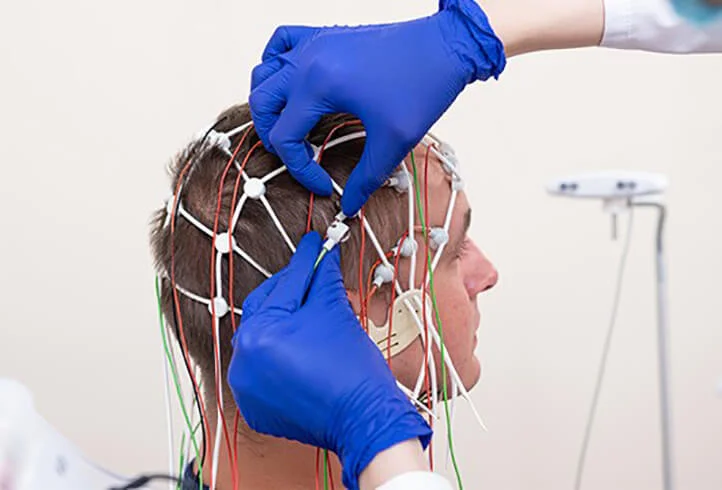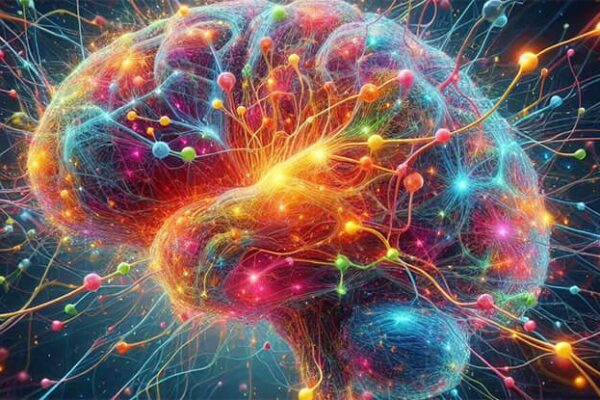Hypersomnia, or excessive daytime sleepiness, is a common sleep disorder affecting millions of people worldwide. This condition is characterized by a persistent feeling of fatigue and sleepiness despite getting an adequate amount of sleep at night. People with hypersomnia often have difficulty concentrating, remembering things, and being productive, which can significantly impact their quality of life.
Hypersomnia can develop at various stages of life but usually begins in adolescence or early adulthood. It is most commonly due to genetic predisposition, though it can also be caused by various medical conditions, medications, or sleep disorders.

Types of Hypersomnia
Hypersomnia is not a single disorder but rather a group of different conditions united by the common symptom of excessive daytime sleepiness. There are several types of hypersomnia, each with its unique causes, symptoms, and treatment approaches. Understanding the differences between these types is crucial for accurate diagnosis and the development of an effective treatment plan.
The causes of hypersomnia can range from unknown idiopathic factors to neurological disorders, sleep-breathing disorders, mental health conditions, or side effects of medications. Some types of hypersomnia have clear genetic or physiological roots, while others develop due to a combination of environmental and lifestyle factors. Regardless of the specific cause, all forms of hypersomnia are characterized by persistent excessive daytime sleepiness, which can severely disrupt daily activities and overall quality of life.
Idiopathic Hypersomnia
Idiopathic hypersomnia is a form of chronic excessive daytime sleepiness for which the cause is unknown. People with this condition may sleep a normal or even greater amount of time at night but still experience constant sleepiness throughout the day.
Idiopathic hypersomnia often begins in adolescence or early adulthood and may have a genetic predisposition. Symptoms of idiopathic hypersomnia include excessive daytime sleepiness, difficulty waking up in the morning, a need for daytime naps, and problems with concentration.
Narcolepsy
Narcolepsy is a chronic neurological disorder characterized by sudden bouts of sleepiness during the day, regardless of the amount of nighttime sleep. People with narcolepsy may also experience cataplexy (sudden muscle weakness), sleep paralysis, and hypnagogic hallucinations.
Narcolepsy is caused by a deficiency of hypocretin, a neurotransmitter that regulates sleep-wake cycles. This disorder often starts in adolescence or early adulthood and may be linked to genetic and environmental factors.
Sleep Apnea Syndrome
Obstructive sleep apnea syndrome (OSAS) is a condition in which the airways become partially or completely blocked during sleep, leading to intermittent breathing and poor-quality nighttime rest. This can cause excessive daytime sleepiness and other hypersomnia symptoms, such as difficulty concentrating, headaches, and irritability.
OSAS is more common in people who are overweight but can also be caused by anatomical features of the upper airways or other medical conditions. Untreated sleep apnea can lead to serious health consequences, including an increased risk of cardiovascular disease, stroke, and metabolic disorders.
Hypersomnia Associated with Mood Disorders
Some mental health disorders, such as clinical depression and bipolar disorder, can be associated with hypersomnia. People with these conditions often experience sleep problems, including excessive daytime sleepiness, difficulty falling asleep, or insomnia, as well as irregular sleep-wake cycles.
Sleep disturbances can be both a symptom and a consequence of mood disorders. They are often exacerbated by stress, anxiety, and changes in brain chemistry. Treating both the underlying mood disorder and related sleep disturbances is essential for improving overall well-being and quality of life.
Hypersomnia Caused by Medical Conditions or Medications
Certain medical conditions, such as hypothyroidism, anemia, chronic pain, liver or kidney diseases, and certain medications, can cause excessive daytime sleepiness as a side effect.
Medications that may contribute to hypersomnia include some antidepressants, sleeping pills, antihistamines, and opioid analgesics. It is important to consult a doctor about potential side effects of any prescribed medications and discuss alternative options if sleepiness becomes a concern.

Signs and Symptoms of Hypersomnia
Excessive daytime sleepiness is the primary and most obvious symptom of hypersomnia, but this disorder can manifest through a variety of other physical, cognitive, and emotional signs. The symptoms of hypersomnia often have a disruptive impact on a person’s daily life, work, studies, and interpersonal relationships.
While persistent sleepiness during the day is a common denominator for all types of hypersomnia, specific symptoms and their severity can vary significantly depending on the underlying cause and individual characteristics. Some people may experience sudden and uncontrollable sleep attacks, while others struggle with constant feelings of fatigue and apathy. Understanding the various symptoms and signs of hypersomnia is crucial for accurate diagnosis and the selection of appropriate treatment.
Common symptoms and signs of hypersomnia include:
- persistent fatigue and sleepiness during the day;
- difficulty concentrating and memory problems;
- irritability and mood swings;
- low motivation and energy;
- trouble waking up in the morning, despite sufficient nighttime sleep;
- an excessive need for daytime naps or sudden bouts of sleepiness;
- reduced productivity at work or school;
- drowsiness while driving, increasing the risk of accidents;
- headaches and migraines;
- digestive problems and changes in appetite;
- increased sensitivity to stress and anxiety;
- difficulties with social interactions and interpersonal relationships.
It is important to note that not all people with hypersomnia experience the same symptoms, and their severity can range from mild to severe. Some symptoms may be more pronounced throughout the day, while others may worsen during specific periods or situations.
Cognitive and Emotional Effects
In addition to physical symptoms, hypersomnia can also negatively affect cognitive functions and emotional well-being. People with this disorder often encounter the following issues:
- impaired concentration, memory, and learning ability;
- slowed reaction times and reduced coordination;
- difficulties with decision-making and problem-solving;
- decreased motivation and initiative;
- irritability, quick temper, and abrupt mood changes;
- feelings of depression, apathy, or loss of interest in activities;
- low self-esteem and self-confidence.
These cognitive and emotional effects can significantly impact quality of life and success in various areas, such as education, career, social interactions, and interpersonal relationships.
Impact on Daily Activities
Persistent sleepiness and fatigue caused by hypersomnia can severely hinder the ability to perform daily tasks and responsibilities. People with this disorder often face the following challenges:
- difficulties with driving and an increased risk of road accidents;
- struggles with concentration at work or school, affecting productivity;
- problems with completing household chores and self-care;
- difficulties caring for children or elderly relatives;
- limitations in engaging in sports, hobbies, and other activities;
- social isolation due to difficulties maintaining relationships and social contacts.
It is important to understand that hypersomnia is not simply laziness or a lack of desire to be active. It is a medical condition that requires proper diagnosis and treatment to improve quality of life.

Diagnosis of Hypersomnia
Diagnosing hypersomnia is a complex task, as excessive daytime sleepiness can be caused by a variety of factors, ranging from sleep disorders to medical conditions and psychological issues. Accurate diagnosis of the type of hypersomnia is crucial for determining the most effective treatment plan and achieving the best outcomes.
The diagnostic process usually begins with a detailed medical history and physical examination. The doctor asks questions about symptoms, sleep patterns, lifestyle, and overall health. Then, various specialized tests and studies may be prescribed to assess sleep quality and structure, the level of daytime sleepiness, and to rule out other possible causes of fatigue and wakefulness disturbances.
History and Physical Examination
During the initial examination, the doctor may conduct the following procedures:
- Assessment of sleepiness symptoms, including their severity, duration, and impact on daily activities.
- Analysis of sleep patterns and habits (bedtime, sleep duration, sleep quality, etc.).
- Medical history and medication review to identify possible causes or contributing factors.
- Physical examination to assess overall health and detect signs related to sleep disorders (e.g., obesity, enlarged tonsils, etc.).
- Mental health assessment to identify potential mood or anxiety disorders.
Based on the collected information, the doctor may hypothesize the possible type of hypersomnia and prescribe additional tests to confirm the diagnosis.
Polysomnography (Sleep Study)
Polysomnography is a comprehensive study conducted in a specialized sleep lab. During this test, various physiological parameters are recorded, such as brain activity, eye movements, breathing, heart rate, blood oxygen levels, and muscle movements.
Polysomnography helps doctors determine whether hypersomnia is related to sleep disorders, such as apnea, breathing disturbances, or sleep architecture abnormalities. It also helps to identify other possible sleep problems that may contribute to excessive daytime sleepiness.
Multiple Sleep Latency Test (MSLT)
The Multiple Sleep Latency Test is used to objectively assess the degree of daytime sleepiness. During this test, the person is asked to attempt to fall asleep several times throughout the day in controlled conditions.
The time required to fall asleep and other sleep parameters are analyzed to determine the level of sleepiness. The MSLT is often conducted alongside polysomnography to obtain a more complete picture of sleep disturbances and the degree of excessive daytime sleepiness.
Other Tests and Studies
Depending on the symptoms and suspected cause of hypersomnia, additional tests and studies may be prescribed, such as:
- blood tests to identify anemia, hormonal imbalances, or other medical conditions;
- brain scans (MRI or CT) to rule out structural abnormalities or damage;
- neuropsychological testing to assess cognitive functions and mental state;
- genetic testing to detect genetic predispositions to certain types of hypersomnia (e.g., narcolepsy);
- drug withdrawal tests to determine whether medications are causing sleepiness.
Accurate diagnosis of the type of hypersomnia is essential for determining the most appropriate treatment plan and achieving the best outcomes. Different types of hypersomnia may require different treatment approaches, so proper diagnosis is a key step toward effectively managing the condition.
For instance, treating idiopathic hypersomnia may involve prescribing stimulants and antidepressants, while treating narcolepsy usually focuses on medications that control sudden sleep attacks and cataplexy. In the case of sleep apnea syndrome, the primary treatment method is CPAP therapy to maintain airway patency during sleep.
Thus, accurate diagnosis of the type of hypersomnia through various tests and studies, including polysomnography, MSLT, and blood tests, is crucial for developing an individualized and most effective treatment plan aimed at addressing the root cause of the disorder and relieving specific symptoms.

Treatment of Hypersomnia
Treating hypersomnia usually requires a comprehensive approach that combines various strategies and methods. Since the causes and symptoms of this disorder can vary greatly, a treatment plan should be individually tailored for each patient based on the type of hypersomnia, the severity of symptoms, and the overall health of the patient.
The main goals of hypersomnia treatment include reducing excessive daytime sleepiness, improving sleep quality, increasing energy and productivity levels, and minimizing the negative impact on daily life and well-being. To achieve these goals, various methods may be used, such as lifestyle and sleep schedule adjustments, medication therapy, cognitive-behavioral therapy, light therapy, and alternative approaches.
Lifestyle Changes and Sleep Hygiene
Maintaining a healthy sleep-wake schedule is fundamental to treating hypersomnia. This includes:
- keeping regular bed and wake-up times, even on weekends;
- limiting or avoiding daytime naps if possible;
- creating a sleep-friendly environment (cool, dark, and quiet room);
- avoiding stimulants (caffeine, nicotine) before bedtime;
- regular physical exercise, but not late in the evening;
- managing stress through relaxation techniques such as yoga, meditation before bed, or progressive muscle relaxation.
Improving sleep hygiene helps enhance the quality of night sleep and reduce daytime sleepiness. However, for many people with hypersomnia, this may not be enough, and additional treatments are required.
Medication Therapy
Depending on the type of hypersomnia, various medications may be prescribed:
- Stimulants (modafinil, armodafinil, solriamfetol) to increase alertness and improve cognitive function.
- Antidepressants (venlafaxine, fluoxetine) for treating idiopathic hypersomnia.
- Medications for sleep apnea treatment (CPAP therapy, mandibular advancement devices).
- Medications for narcolepsy treatment (oxybate, sodium oxybate) to control bouts of sleepiness and cataplexy.
- Sleeping aids (if necessary) to improve night sleep quality.
During medication therapy, it’s essential to strictly follow the doctor’s prescriptions and report any side effects to adjust dosages correctly.
Cognitive-Behavioral Therapy (CBT)
Cognitive-behavioral therapy (CBT) is helpful for managing hypersomnia symptoms and improving the quality of life. This form of psychotherapy focuses on changing negative thoughts and behavioral patterns related to sleep disturbances.
During CBT sessions, patients learn relaxation techniques, stress management strategies, improved sleep hygiene practices, and cognitive restructuring methods to overcome negative beliefs and anxious thoughts associated with sleep.
Light Therapy
Light therapy (exposure to bright light) helps synchronize circadian rhythms and improve sleep quality. It is especially effective in treating seasonal affective disorders but can also be used as an adjunct treatment for hypersomnia.
During light therapy, the patient is exposed to bright light at specific times, usually in the morning, to help regulate sleep-wake cycles.
Alternative and Complementary Methods
Some people also turn to alternative and complementary methods to alleviate hypersomnia symptoms, such as:
- Herbal medicine (use of plant-based remedies like valerian or melatonin);
- Acupuncture;
- Aromatherapy with calming essential oils;
- Massage to relieve tension and improve relaxation;
- Diet changes and supplements to enhance sleep and energy metabolism.
However, it is important to consult a doctor before using any alternative methods to ensure their safety and avoid interactions with other medications.
Combined Approach
For the best results in treating hypersomnia, a combination of different methods is often required. For example, medication therapy may be complemented by lifestyle changes, cognitive-behavioral therapy, and alternative methods. This allows for a comprehensive approach to managing symptoms and improving the quality of life.
It is important to work closely with doctors, psychotherapists, and sleep specialists to develop an individual treatment plan that best suits your needs and preferences.

The Impact of Hypersomnia on Quality of Life
Hypersomnia is not just a condition of excessive daytime sleepiness; it can have a profound and disruptive impact on many aspects of a person’s life. From professional activity and social interactions to mental and physical health, the consequences of this disorder can be far-reaching and affect virtually every area of daily functioning.
Understanding the broad spectrum of negative consequences associated with hypersomnia is crucial for patients themselves, as well as for their family members, employers, and healthcare providers. Only by recognizing the full scope of the condition’s impact can effective strategies be developed to minimize its destructive effects.
Social and Professional Issues
Excessive daytime sleepiness can negatively affect work performance or studies, as well as social interactions. People with hypersomnia often experience the following difficulties:
- decreased concentration and work productivity;
- trouble remembering information and learning new things;
- low motivation and difficulty reaching goals;
- risk of job loss or academic failure;
- social isolation and difficulties in maintaining interpersonal relationships.
These issues can lead to financial difficulties, stress, and negatively impact self-esteem and well-being.
Health and Safety Risks
Hypersomnia increases the risk of health and safety problems, such as:
- Car accidents due to drowsiness while driving. Sleepiness reduces reaction time, attention, and the ability to make quick decisions.
- Injuries and accidents related to drowsiness at work or at home. Excessive sleepiness can lead to inattention and an increased risk of falls or errors when performing tasks.
- Obesity and related diseases due to a sedentary lifestyle and metabolic disorders, which are often observed in hypersomnia.
- Metabolic disorders, such as diabetes and cardiovascular diseases, whose risks increase due to obesity and sleep disturbances.
- Increased risk of depression and anxiety disorders due to the disruption of normal functioning and quality of life.
- Exacerbation of symptoms of other chronic diseases, such as asthma, arthritis, or migraines, which can be worsened by sleep disturbances.
Timely diagnosis and treatment of hypersomnia are essential to reduce these risks and maintain overall health and safety.
Psychological Consequences
Constant sleepiness and fatigue can lead to serious psychological issues, including:
- low self-esteem and insecurity due to difficulties in completing everyday tasks and achieving goals;
- irritability, short temper, and frequent mood swings;
- apathy, loss of interest in activities, and social isolation;
- higher risk of developing depression and anxiety disorders;
- problems with concentration and decision-making;
- interpersonal relationship and social functioning issues.
Timely intervention and psychological support can help prevent or mitigate these negative effects.
Financial Difficulties
Hypersomnia can also create financial difficulties for an individual and their family. Reduced work productivity, the risk of job loss, or the need to change to a less demanding job can lead to a decrease in income.
In addition, the costs of medical care, medications, and diagnostic procedures can be significant, especially if hypersomnia is a chronic condition requiring long-term treatment.
These financial difficulties can cause additional stress and negatively impact the quality of life and mental health of the person with hypersomnia and their loved ones.
It is important to consider all of these potential consequences and take timely measures to minimize them. A multidisciplinary approach to treatment, combining medical care, psychological support, and social services, helps people with hypersomnia cope with various challenges and maintain the best possible quality of life.

Lifestyle and Recommendations for Hypersomnia
While hypersomnia is a serious disorder that often requires medication and medical intervention, lifestyle changes also play a key role in managing symptoms and improving overall well-being. Proper habits, sleep schedules, and a healthy lifestyle can be valuable additions to traditional treatments.
From maintaining sleep hygiene to exercising, diet, and stress management, there are many lifestyle strategies that help combat excessive daytime sleepiness.
Sleep Improvement Tips
- Follow a strict sleep routine, going to bed and waking up at the same time every day, even on weekends.
- Create a conducive sleep environment: a dark, cool, quiet room with a comfortable bed and bedding.
- Avoid caffeine and other stimulants several hours before sleep.
- Limit the use of electronic devices (TV, smartphone, tablet) before bed, as their light can disrupt circadian rhythms.
- Engage in relaxing bedtime rituals, such as a warm bath, light reading, or meditation, to prepare your body and mind for sleep.
- Don’t stay in bed if you can’t fall asleep within 20 minutes. Get up and engage in a calm activity until you feel sleepy.
The Importance of Physical Exercise
Regular physical exercise offers numerous benefits to people with hypersomnia, including:
- improving sleep quality and easing the process of falling asleep;
- increasing energy and reducing daytime sleepiness;
- lowering the risk of obesity and related diseases;
- improving mood and reducing symptoms of anxiety and depression;
- enhancing overall health and increasing endurance.
It is recommended to engage in moderate-intensity aerobic exercises (walking, cycling, swimming) for 30-60 minutes a day or more intense activities (running, dancing, strength training) at least three times a week. It’s important to avoid physical activity right before bedtime, as this can make falling asleep more difficult.
Stress Management
High stress levels can worsen the symptoms of hypersomnia, so it is crucial to learn how to manage stress effectively. Here are some recommended techniques:
- yoga and meditation to reduce anxiety and promote relaxation;
- walks outdoors and regular physical exercise;
- deep breathing and visualization techniques;
- keeping a journal to track stress triggers;
- consulting a psychologist or joining support groups to learn stress management strategies;
- setting realistic expectations and distributing responsibilities to avoid overwhelming yourself;
- making time for rest, hobbies, and activities that bring pleasure.
Nutrition and Additional Recommendations
Proper nutrition also plays a significant role in managing hypersomnia symptoms:
- Follow a balanced diet with sufficient protein, whole grains, fruits, and vegetables to provide the body with essential nutrients.
- Avoid heavy, fatty meals, especially before bedtime, as they can disturb the quality of night sleep.
- Drink enough water to maintain proper hydration levels.
- Consider taking supplements with B vitamins, iron, or magnesium after consulting a doctor, as deficiencies in these nutrients may contribute to fatigue and sleepiness.
Additionally, it is important to follow general recommendations for a healthy lifestyle:
- Try to reduce smoking and alcohol consumption, as they can interfere with sleep quality and worsen hypersomnia symptoms.
- Ensure you get adequate night sleep (around 7-9 hours for adults).
- Maintain social connections and regularly interact with friends and family to avoid isolation.
- Seek professional help (medical, psychological, or social) if needed without hesitation.

Conclusion
Hypersomnia is a serious condition that can significantly affect a person’s quality of life. Timely diagnosis and appropriate treatment are crucial for alleviating symptoms and preventing potential health and safety risks.
If you experience persistent excessive daytime sleepiness, consult a doctor for a comprehensive evaluation and appropriate treatment. While hypersomnia can be a challenging condition, a combination of medication, lifestyle changes, psychological support, and alternative methods can greatly improve quality of life.
It’s also important to understand that hypersomnia is a medical condition, not a sign of laziness or a lack of motivation. People with this disorder need empathy, understanding, and support from those around them.




